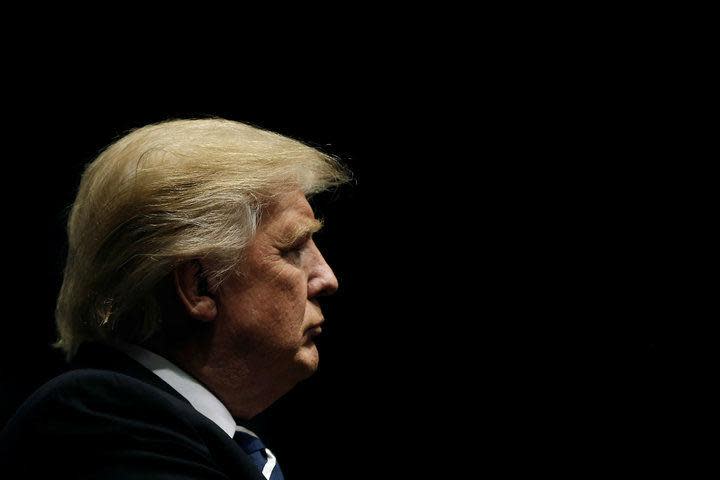Donald Trump's 'flirtation with torture' undermines human rights warns UN official

The most senior UN human rights official has accused Donald Trump of a “flirtation with torture” - something that could lead to an increase in its use around the world.
Zeid Ra’ad al-Hussein, UN High Commissioner for Human Rights, said Mr Trump had repeatedly suggested he wanted to bring back the use of torture, even though his own officials had warned him against doing so.
“If other leaders start to follow the same rhetorical course, undermining the [UN Convention against Torture] with their words, the practice of torture is likely to broaden, and that would be fatal,” he said during a speech in London, according to Reuters.
UK PM’s call for human rights laws to be overturned if they “get in way” of terrorism fight is highly regrettable https://t.co/AaWjVpW5Rb pic.twitter.com/UQhwuDP6eG
— UN Human Rights (@UNHumanRights) June 27, 2017
“The Convention would be scuttled, and a central load-bearing pillar of international law removed.”
Mr Hussein also criticised UK Prime Minister Theresa May for threatening to change human rights laws if they got in the way of security operations, saying her words would give heart to authoritarian governments.
Mr Trump said earlier this year he thought that waterboarding - a form of simulated drowning that was outlawed once Barack Obama became president - worked as an intelligence-gathering tool. He also said he relied on advice Defence Secretary Jim Mattis, who disagreed with him about the technique’s usefulness and legality.
“He has stated publicly that he does not necessarily believe in torture or waterboarding, or however you want to define it…I don’t necessarily agree,” said Mr Trump. “But I would tell you that he will override because I’m giving him that power. He’s an expert.”
Mr Hussein said he was worried by Mr Trump’s “persistent flirtation” with a return to torture. There was little immediate danger of the United States following such a course as things stood, but that could change if there was an attack on US soil.
“Mindful of how the American public has, over the last ten years, become far more accepting of torture, the balance could be tipped in favour of its practice,” he said.
After a series of terror attacks in the UK, Ms May told The Sun newspaper: “If human rights laws get in the way of doing these things, we will change those laws to make sure we can do them.”
Mr Hussein said Ms May’s remarks undoubtedly reflected real anger but also seemed “intended to strike a chord with a certain sector of the electorate and it is this expectation that truly worries me”.
“Whatever the intention behind her remarks, they were highly regrettable, a gift from a major Western leader to every authoritarian figure around the world who shamelessly violates human rights under the pretext of fighting terrorism,” he said.
Mr Hussein also criticised Philippine President Rodrigo Duterte's rights record. Police say almost 9,000 people, many small-time drug users and dealers, have been killed since he took office.
“The president of the Philippines has spoken openly about extra-judicial killings. And the president of the United States of America has said that torture could be necessary in certain circumstances. There is no longer any pretence. They are breaking long-held taboos,” he said.
“The dangers to the entire system of international law are therefore very real.”

 Yahoo News
Yahoo News 
